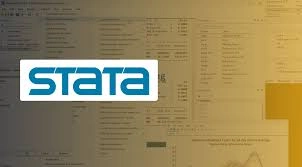Course Overview
The Advanced Monitoring & Evaluation Techniques course is designed for professionals looking to deepen their understanding of M&E practices, methodologies, and tools. This course focuses on advanced concepts in monitoring and evaluation, equipping participants with the skills to design and implement comprehensive M&E frameworks, utilize data for decision-making, and ensure effective program management. The course covers both qualitative and quantitative methods, with a strong emphasis on real-world application, data analysis, and reporting.
Course Duration
10 Days
Who Should Attend
The course is designed for experienced M&E professionals, researchers, and program managers seeking to enhance their skills in designing and conducting rigorous evaluations. Participants should have a solid foundation in basic M&E principles and practices.
Course Level: IntermediateCourse Objectives
By the end of this course, participants will be able to:
- Apply advanced M&E techniques to complex program evaluations
- Design and conduct rigorous impact evaluations
- Utilize advanced data analysis methods for in-depth insights
- Develop and implement theory-based evaluations
- Incorporate mixed methods approaches for comprehensive evaluation
- Assess program efficiency and cost-effectiveness
- Utilize advanced M&E software and tools
- Communicate complex evaluation findings effectively to diverse audiences
- Lead and manage complex M&E teams and projects
- Contribute to the advancement of the M&E field
Course Outline:
Module 1: Advanced Impact Evaluation Methods
- Experimental and quasi-experimental designs
- Difference-in-differences and matching methods
- Impact path analysis
- Panel data analysis
Module 2: Theory-Based Evaluation
- Developing program theories
- Theory-driven evaluation designs
- Outcome mapping and logic modeling
- Using theories of change for evaluation
Module 3: Mixed Methods Research
- Integrating qualitative and quantitative data
- Mixed methods designs
- Data triangulation and convergence
- Qualitative data analysis techniques
Module 4: Cost-Effectiveness and Efficiency Analysis
- Cost-benefit analysis
- Cost-effectiveness analysis
- Efficiency measurement
- Resource allocation optimization
Module 5: Advanced Data Analysis Techniques
- Multivariate analysis
- Structural equation modeling
- Meta-analysis
- Data mining and machine learning
Module 6: Monitoring and Evaluation Systems Design
- Performance management frameworks
- Results-based management
- Designing adaptive management systems
- Building learning organizations
Module 7: Evaluation Ethics and Quality Assurance
- Ethical considerations in evaluation
- Ensuring rigor and validity
- Peer review and quality improvement
- Ethical reporting and dissemination
Module 8: M&E for Complex Interventions
- Evaluating multi-sectoral programs
- Evaluating capacity building interventions
- Evaluating policy interventions
Module 9: Using M&E for Policy and Advocacy
- Evidence-based policymaking
- Advocacy and communication strategies
- Influencing policy and practice
Module 10: Leadership and Management in M&E
- Leading M&E teams
- Managing complex M&E projects
- Building M&E capacity
- Mentoring and coaching
Customized Training
This training can be tailored to your institution needs and delivered at a location of your choice upon request.
Requirements
Participants need to be proficient in English.
Training Fee
The fee covers tuition, training materials, refreshments, lunch, and study visits. Participants are responsible for their own travel, visa, insurance, and personal expenses.
Certification
A certificate from Ideal Sense & Workplace Solutions is awarded upon successful completion.
Accommodation
Accommodation can be arranged upon request. Contact via email for reservations.
Payment
Payment should be made before the training starts, with proof of payment sent to outreach@idealsense.org.
For further inquiries, please contact us on details below:






